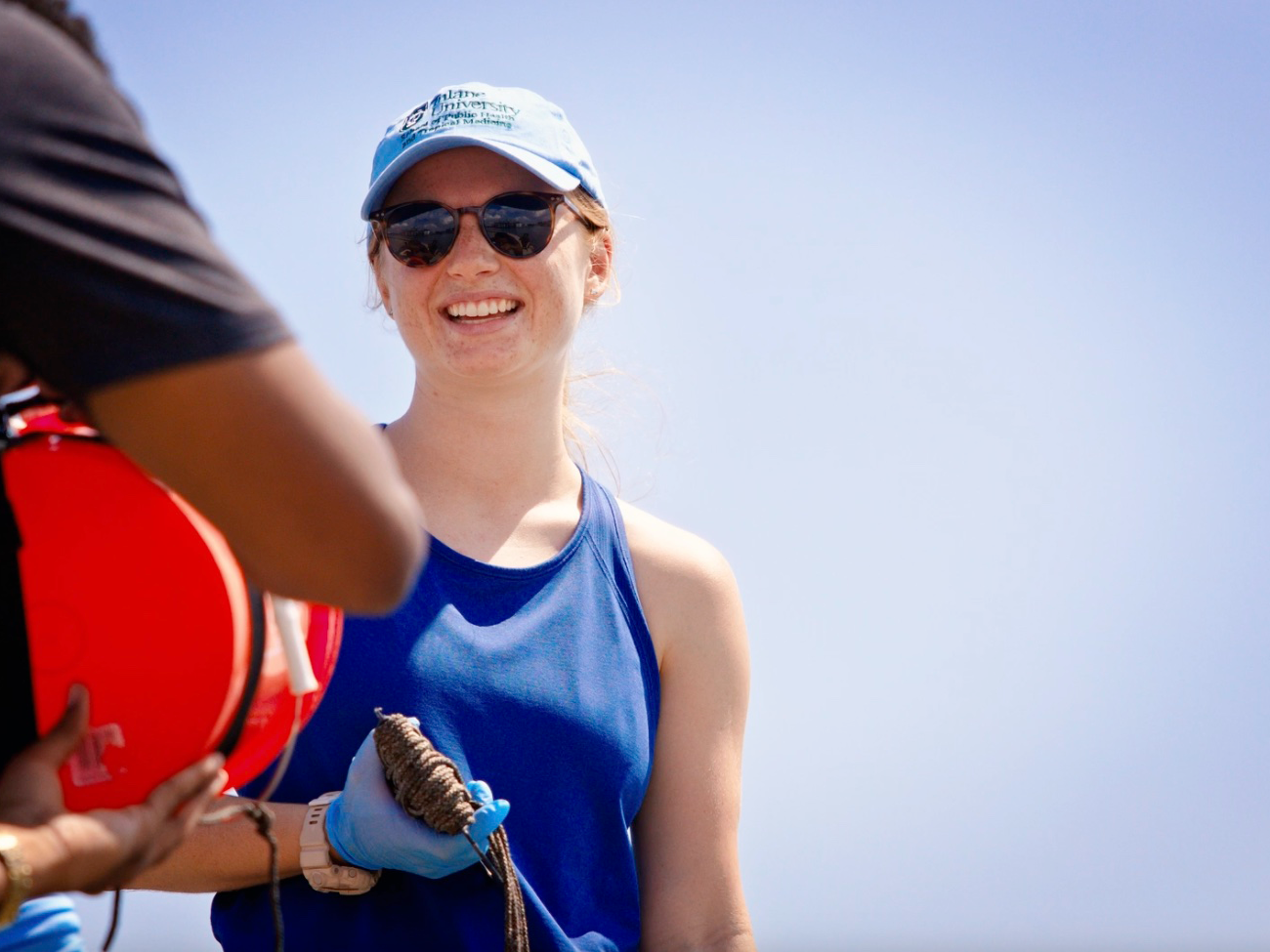Studying disease-causing bacteria in Lake Pontchartrain
September 9, 2024
Molly McCrory From being a child enthralled by a book about dolphins to a student studying bacterial contamination in Lake Pontchartrain, Annika Nelson has always been interested in biology. (Photo by Vincent Postle)From being a child enthralled by a book about dolphins to a student studying bacterial contamination in Lake Pontchartrain, Annika Nelson has always been interested in biology.
“Once I got to college, I loved learning about biology and a lot of the processes that are going on just to keep you alive that you have no idea are happening,” said Nelson, a senior majoring in cell and molecular biology and public health with a minor in ecology and evolutionary biology. “Public health sort of generalizes that to a population or an individual level, where you can see diseases where things aren’t happening correctly.”
This year, Nelson received the Louisiana Sea Grant to study pathogenic, or disease-causing, bacteria in Lake Pontchartrain. The bacteria she studies is part of the vibrio genus, including Vibrio cholera, the bacteria that causes cholera. She is working as an undergraduate researcher in the lab of Tiong Gim Aw, vice chair and associate professor in the Department of Environmental Health Sciences in the School of Public Health and Tropical Medicine.
Nelson and another researcher in Aw’s lab, PhD student Josh Alarcon, take samples from 12 sites in Lake Pontchartrain, on both the north and south shores.
“The sites that we test on the lake are recreational sites, so they are places where people are boating or swimming or fishing and interacting with the water,” said Nelson. “When they interact with the water, if there is bacteria in the water, they could be exposed to it.”
The state of Louisiana does not test for vibrio bacteria, so the contamination risks go underreported, leading to the potential for infections.
The hope is that this research will give a clearer look at water contamination in Lake Pontchartrain, meaning people will be more aware of the risks in these recreational areas. Nelson is also looking at the relationship between vibrio levels and environmental factors, like water temperature and rainfall.
“Her work is at the forefront of environmental health,” said Aw of Nelson.
Nelson has been a member of Aw’s research group since 2022, when she was a sophomore. Aw submitted her for the Louisiana Sea Grant Undergraduate Research Opportunities Program and worked with her on developing the project she is now running.
“Mentorship is so important,” Nelson said. Working in a lab not only with Aw, but also with graduate students and postdoctoral researchers, means that she has many people to ask for advice and to learn from.
Nelson hopes to pass the help she has received forward as she continues her career in research. “When I’m taking the next steps in my career, I want to be a good teacher to others and help develop the next generation of researchers,” she said, “because I definitely could not have done this on my own.”
https://news.tulane.edu/sites/default/files/oembed_thumbnails/eoveoD6cf1iVemW3_lz7V3-i8zzADtCpkq8r5dk2qcI.jpg

